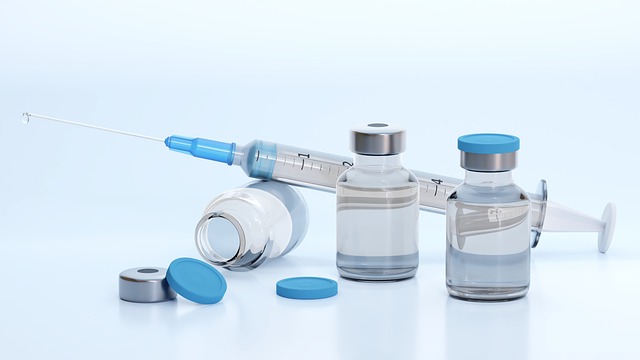What comes to mind when you think of the word ‘aluminum’? Chances are that you likely picture various aluminum products such as foil, cans, and window frames. Considering that this is the first thing that people envision when thinking about aluminum, it’s no surprise that anti-vaxxers freak out when they learn that there is aluminum in vaccines. This has resulted in the spread of conspiracies and fears that there is a link between vaccines and autism, as well as other childhood diseases. However, a new study conducted in Denmark has countered these fears.
The Study on the Effect of Aluminum in Vaccines

In 2024, Robert F. Kennedy Jr., the current Health and Human Services Secretary, stated on a podcast that aluminum in vaccines is “extremely neurotoxic.” However, after analyzing the data of over 1 million individuals, a newly published study found no connection between these vaccines and a higher risk of developing chronic conditions, such as allergies, autism, and autoimmune diseases. According to the head of epidemiology research at Statens Serum Institut, Anders Hviid, “Our study addresses many of these concerns and provides clear and robust evidence for the safety of childhood vaccines. This is evidence that parents need to make the best choices for the health of their children.”
For the study, the research team examined the health records of more than 1,2 million Danish individuals born between 1997 and 2018, following their health status until the end of 2020. Using Denmark’s meticulously documented health records, the team compared the data of children who had received more aluminum in their vaccines by the age of two to those who had not received as much. Their goal was to try to find any connections between exposure to aluminum in vaccines and 50 chronic disorders. This included nine allergy conditions, 36 autoimmune disorders, and five neurodevelopmental disorders.
The Results of the Study

According to the researchers, none of these conditions occurred at statistically higher levels than anticipated. This rules out the possibility that aluminum in vaccines leads to any moderate or substantial increase in risk. “We can exclude meaningful increases with a large degree of certainty for many of these outcomes,” stated Hviid, adding, “We should not be concerned about aluminum used as an adjuvant in childhood vaccines. I think that’s the core message.” He added that while they couldn’t rule out the possibility of a minute increased risk of extremely rare conditions, they did not observe any significant increase in the conditions mentioned earlier.
That tells the researchers that there is evidently no epidemic of chronic diseases as claimed by anti-vaxxers. However, it was not the anti-vaxxers that prompted the team to conduct the study, but rather a 2022 study funded by the Centers for Disease Control and Prevention that suggested that there was a link between aluminum in vaccines and asthma development. However, not only did some of this study’s findings contradict its own conclusions, but it also did not differentiate between aluminum in vaccines and aluminum acquired from other sources. What many people don’t realize is that aluminum is part of our daily diet.
Why Is Aluminum in Vaccines?

Aluminum salts have been used in the medical field for more than 70 years now. Therefore, there is plenty of evidence that supports the claim that it is both effective and safe to use. However, anti-vaxxers have claimed that aluminum can potentially overstimulate the immune system. Yet those who advocate for its use counter that the level of exposure through vaccines is far below the accepted safety limits. In fact, these salts are added to various children’s vaccines because they improve the immune response the vaccines trigger. Additionally, aluminum is not used in mRNA vaccines ot those containing weakened live viruses like mumps and measles.
Instead, they are used in protein-based vaccines in addition to those made from killed bacteria or viruses, called inactivated vaccines. Aluminum is added to vaccines to act as an adjuvant. An adjuvant alerts your body’s immune response to the vaccine’s antigen. Without adjuvants, you can potentially create a tolerance, which is actually the exact opposite of what you want any vaccine to do. At the moment, there are no viable replacements for aluminum in vaccines. According to Hviid, “The aluminum-containing vaccines form the backbone of our childhood immunization programs. It is critically important that we keep politics and science apart in this issue. If not, it is the children, including U.S. children, who are going to suffer the consequences.”
The Bottom Line

Anti-vaxxers and a faulty prior study had raised questions about the safety of aluminum in vaccines. However, this new large-scale study has offered substantial evidence that it does not increase the risk of developing certain conditions and disorders. While some critics had suggested there was a connection between vaccines and autism, asthma, and allergies, no statistically significant indication of such a claim could be found by the researchers.
Read More: RFK Jr.’s Vaccine Panel Votes to Eliminate Mercury-Containing Flu Shots

